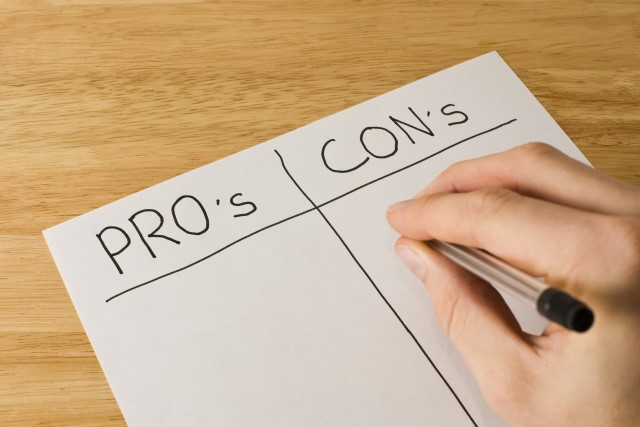This is the second installment in our 25 week series exploring the 25 competencies, or soft skills, that our assessments measure. Each week we’ll give you the definition of that competency, explain its value, and give you tips to help you develop it. This week: Decision Making.
We define Decision Making as analyzing all aspects of a situation to make consistently sound and timely decisions. Most people don’t take the time to really look at all aspects of an issue before diving in with a solution. This leads to rash decisions that tend to have unintended consequences.
As human beings, we make thousands of decisions every day. Some are more mundane, like what you’re going to wear or what you’re going to eat for lunch. But there are also the “big ticket” decisions, like whether or not you should move to a new city or who you should hire for the open position at your company. Developing the skill of Decision Making gives you the ability to make the best decisions possible every time, for issues both big and small.
This definition points out two aspects that make a decision effective, being both sound and timely. The soundness of the decision comes from gathering as much data and as many viewpoints as possible on the matter. The timeliness comes from not letting all that information gathering slow you down, but also not making decisions too quickly. Certainly there are decisions that don’t take as much time to make because they are not as weighted as others, but making those bigger decisions too quickly can lead to missteps.
Based on our individual styles of behavior, some of us have a tendency to make decisions too quickly, while some of us make decisions too slowly. What are your tendencies? Good self-awareness will lead to better decision making.
If you’re a quick decision maker, an easy way to start improving your Decision Making is to examine every decision before you make it final. Stop and ask yourself how you came to that decision. Who did you talk to about it? What outside perspectives did you get? What do you expect the outcome of this decision to be? Is that a realistic expectation? Pausing to reexamine the decision one last time can help you make sure you’re not making an impulsive decision.
If you’re a slower decision maker, make sure that you set a deadline. Give yourself permission to dig deep into the issue, but only for a certain period of time. After that period, use the information that you’ve gathered and make the best decision with what you’ve got.
Good leaders make good decisions. Good leaders include others in the decision making process when they have the time and they take leaps of faith on other decisions when action is needed immediately. Whatever the situation, know enough about yourself, about your team, and about the situation to be intentional with your decision making.
If you want to determine your level of skill in Decision Making, click here to take a complimentary competencies assessment.
